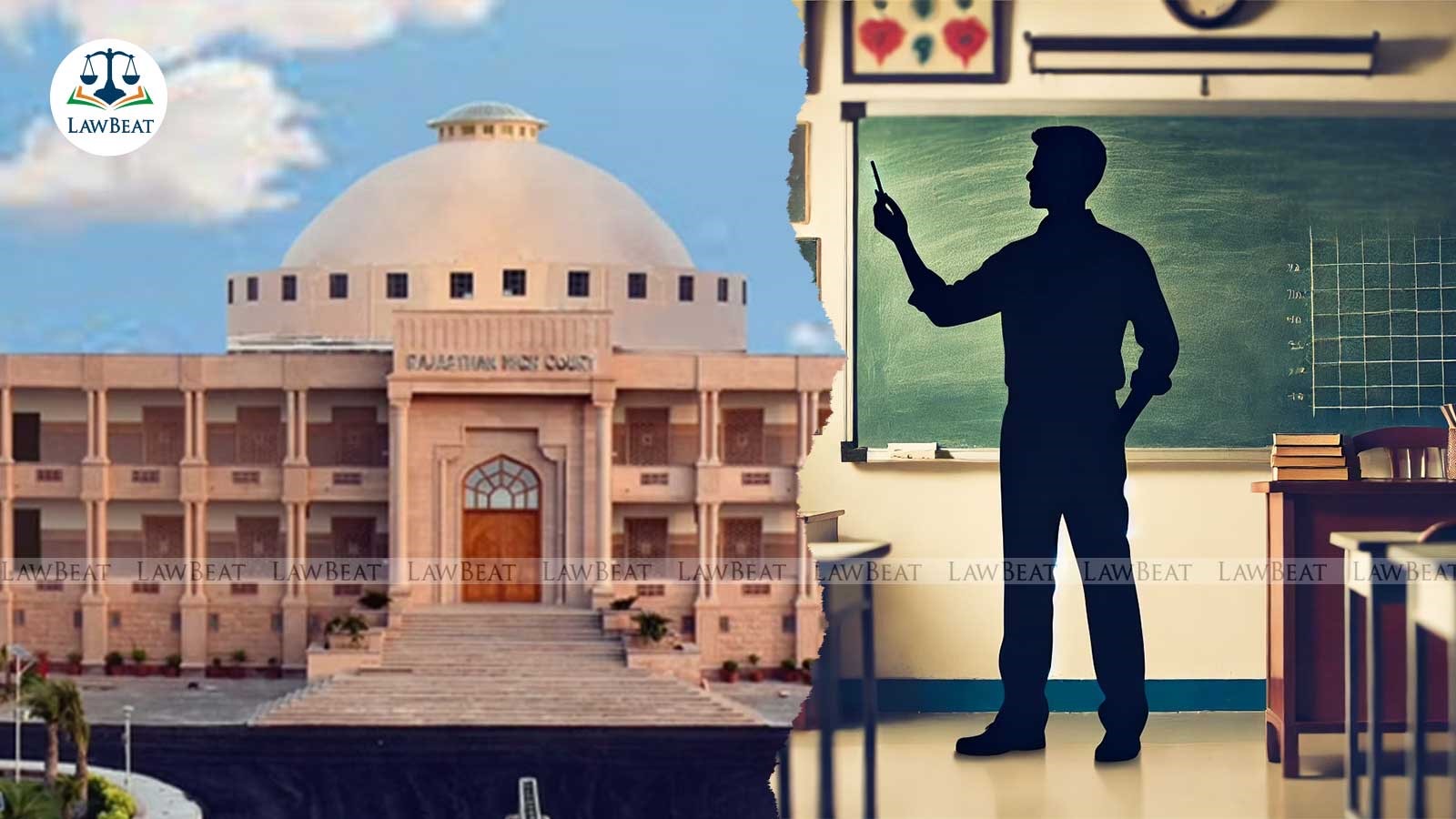Concealing Pending Criminal Case Sufficient Ground to Deny Employment : Rajasthan HC Denies Relief to Rejected Candidate For Primary Teacher Job

The court observed that the role of a teacher is a "pious duty" and the most relevant criteria for such a position should be "trustfulness and unimpeachable integrity"
The Rajasthan High Court has dismissed a writ petition filed by a candidate, Satyanarayan Meena (petitioner), seeking appointment as a primary school teacher. The court held that suppression of a pending criminal case in the application form was sufficient grounds for denying employment, regardless of the seriousness of the charges.
The court, presided over by Justice Vinit Kumar Mathur, observed : “When a person is entrusted with the pious duty of imparting education and Sanskar to the young children, then the most important & relevant criteria for selection of that person should be trustfulness and unimpeachable integrity. In the present case, since the appointment is going to be made on the post of Primary School Teacher who is going to teach the young students in the school and, if credentials of such a person is on the foundations of falsehood, fraud and misrepresentation, then the institution in which he is going to be posted will have a bleak future.” The court opined that if such a person were appointed, the future of the institution would be at risk. Therefore, even though the candidate was otherwise meritorious, they did not deserve any leniency.
The court’s observation came on a plea filed by the petitioner, who had applied for the position of Primary School Teacher (General/Special Education) (Level-1) as per an advertisement dated December 16, 2022. He successfully cleared the written examination and was called for document verification. However, during the verification process, the authorities discovered that the petitioner had concealed the existence of a pending criminal case against him. The petitioner had submitted multiple attestation forms during the application process. In the first form, he disclosed a pending case involving charges of domestic violence, but left the relevant section blank in the second form. Further, the petitioner submitted a self-declaration form, dated July 7,2023, in which he falsely declared that no criminal case was pending or had been decided against him.
The State, on the other hand, argued that the petitioner intentionally concealed material facts to secure the job, presenting evidence that the petitioner falsely marked a "cross" in the section on pending criminal cases in the attestation form. The authorities contended that such concealment, especially for a teaching position, would harm the students' future.
The court concurred with the State's arguments, emphasising that while the charges against the petitioner might not have been severe, the act of suppressing material facts itself was enough to disqualify him from the post.
Referring to the Supreme Court's judgment in Rajasthan Rajya Vidyug Prasaran Nigam Ltd. v. Anil Kanwariya, the court reiterated that the question was one of trust, stressing that the employer has the right to choose whether to continue such an employee or not.
“The question is not about whether an employee was involved in a dispute of trivial nature and whether he has been subsequently acquitted or not. The question is about the credibility and/or trustworthiness of such an employee who at the initial stage of the employment, i.e., while submitting the declaration/verification and/or applying for a post made false declaration and/or not disclosing and/or suppressing material fact of having involved in a criminal case. If the correct facts would have been disclosed, the employer might not have appointed him. Then the question is of TRUST. Therefore, in such a situation, where the employer feels that an employee who at the initial stage itself has made a false statement and/or not disclosed the material facts and/or suppressed the material facts and therefore he cannot be continued in service because such an employee cannot be relied upon even in future, the employer cannot be forced to continue such an employee,” the court noted.
In light of the petitioner's concealment of a pending criminal case, the Court ruled that he did not deserve the appointment. Accordingly, the writ petition was dismissed.
Cause Title: Satyanarayan Meena v State of Rajasthan [S.B. Civil Writ Petition No. 15388/2023]
